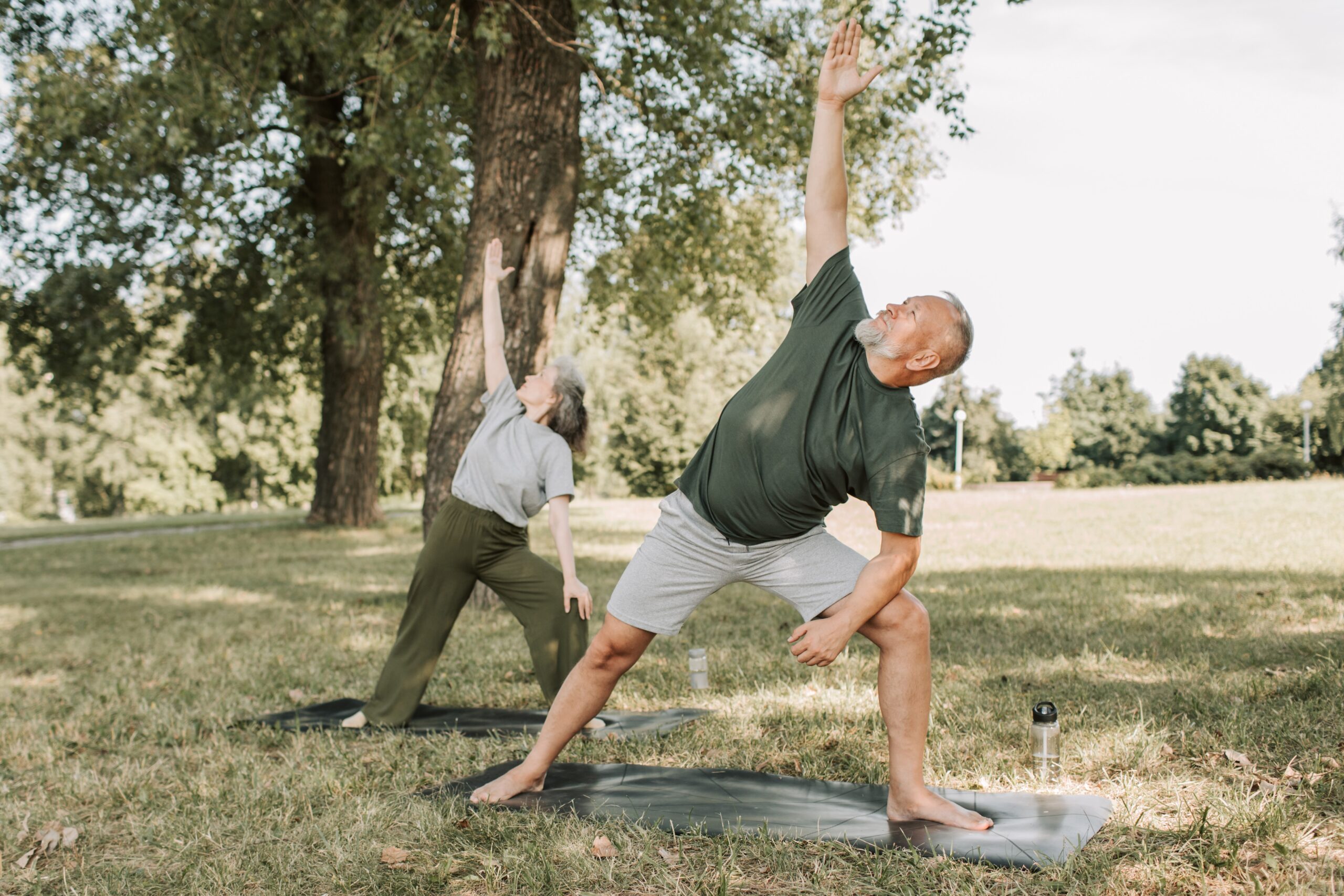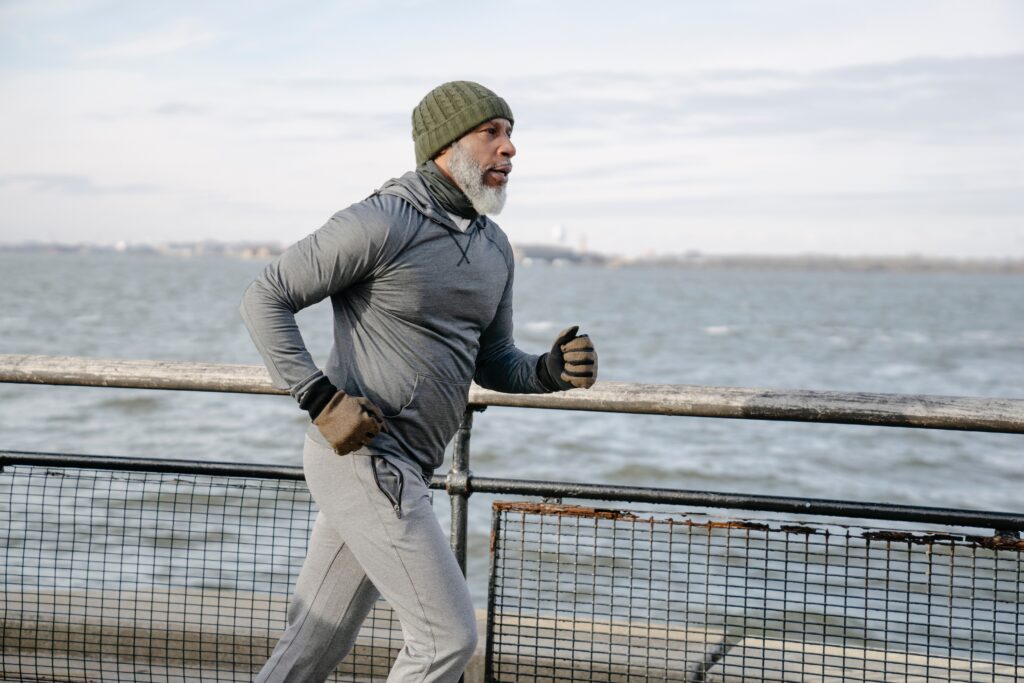Exercise Tips for Maintaining Strong Bones in Old Age
Contents
- 1 Exercise Tips for Maintaining Strong Bones in Old Age
- 1.1 Introduction to Exercise Tips for Maintaining Strong Bones in Old Age
- 1.1.1 Exercise Tips for Maintaining Strong Bones in Old Age
- 1.1.1.1 Embrace Weight-Bearing Activities
- 1.1.1.2 Incorporate Strength Training
- 1.1.1.3 Try Balance and Stability Exercises
- 1.1.1.4 Include Aerobic Exercises
- 1.1.1.5 Gradually Increase Intensity
- 1.1.1.6 Stay Consistent
- 1.1.1.7 Maintain Proper Form
- 1.1.1.8 Stay Hydrated and Eat a Balanced Diet
- 1.1.1.9 Avoid Overexertion
- 1.1.1.10 Consult Your Doctor
- 1.1.1 Exercise Tips for Maintaining Strong Bones in Old Age
- 1.2 Exercise Tips for Maintaining Strong Bones in Old Age: FAQ’s
- 1.3
- 1.4 Conclusion
- 1.1 Introduction to Exercise Tips for Maintaining Strong Bones in Old Age
Read DISCLAIMER
Learn effective exercise tips for maintaining strong bones in old age. Discover expert insights and practical advice to ensure your bone health as you age.

Introduction to Exercise Tips for Maintaining Strong Bones in Old Age
Natural aging causes a number of changes in our bodies, including a decline in bone density. However, continuing to be physically active and include the correct workouts in your regimen will greatly help you keep your bones healthy as you age. This in-depth blog will cover crucial workout advice that will keep your bones healthy as you age, allowing you to retain an active and independent lifestyle.

Exercise Tips for Maintaining Strong Bones in Old Age
Our bones are increasingly prone to fractures and osteoporosis as we age. Regular physical exercise can be a very effective approach in avoiding these problems. Here are some exercises to do to keep your bones healthy as you age:
Embrace Weight-Bearing Activities
Walking, dancing, and hiking are weight-bearing activities that aid in promoting bone growth and enhancing bone density. Your bones receive the proper amount of stress from these activities, which helps them stay strong.
Incorporate Strength Training
Your bones are supported by your muscle mass, which may be increased by strength training with resistance bands, weights, or your own body weight. Targeted strength training should occur at least twice per week.
Try Balance and Stability Exercises
By working the muscles that promote bone health, balance and stability activities like yoga and tai chi not only lower the chance of falling but also strengthen bones.

Include Aerobic Exercises
Exercises that improve cardiovascular health and general fitness include swimming and cycling. Despite not being weight-bearing exercises, they may be paired with those that are to create a well-rounded practice.
Gradually Increase Intensity
To prevent overexertion or injury when you first begin exercising, start out slowly and gradually build your intensity. Create a safe and efficient training schedule by consulting a fitness expert.
Stay Consistent
Gaining the advantages of exercise requires consistency. To keep your program interesting and sustainable, make a realistic timetable that incorporates a variety of workouts.
Maintain Proper Form
To avoid putting undue stress on your joints and bones, be sure you’re exercising with the proper form. Injuries might result from using improper form.
Stay Hydrated and Eat a Balanced Diet
Nutrition and hydration are essential for bone health. Eat foods that are high in calcium, such as dairy products, leafy greens, and fortified meals. For calcium absorption, enough vitamin D dietary intake is also essential.
Avoid Overexertion
While it’s good to push yourself, don’t push yourself too far. To avoid injuries, pay attention to your body and take breaks as necessary.
Consult Your Doctor
Consult your doctor before beginning any new fitness program, especially if you have any pre-existing medical issues. They can provide you individualized guidance depending on your medical background.

Exercise Tips for Maintaining Strong Bones in Old Age: FAQ’s
Can Exercise Really Help Maintain Strong Bones in Old Age?
Absolutely. Engaging in regular exercise, especially weight-bearing and strength training activities, can enhance bone density and reduce the risk of fractures.
Are High-Impact Exercises Safe for Seniors?
High-impact exercises can be beneficial, but they should be approached with caution. Consult a fitness professional to determine the most suitable exercises for your fitness level.
How Often Should I Exercise for Strong Bones?
Aim for at least 150 minutes of moderate-intensity aerobic activity, along with muscle-strengthening exercises two days a week.
Can I Start Exercising if I’ve Never Been Active Before?
It’s never too late to start exercising, but it’s recommended to start slowly and gradually increase intensity. Consult a healthcare provider before beginning any new exercise routine.
Are There Any Foods That Support Bone Health?
Yes, foods rich in calcium and vitamin D are essential for bone health. Include dairy products, leafy greens, nuts, and fortified foods in your diet.
Should I Take Supplements for Bone Health?
Consult your doctor before taking any supplements. They can assess your nutritional needs and recommend supplements if necessary.
Conclusion
It’s critical to keep your bones healthy as you age if you want to live a high-quality life. These workout suggestions can help you considerably improve your bone health, lower your risk of fractures, and lead an active, independent lifestyle. Remember, it’s never too late to make an investment in your bone health.

[…] Learn more about Exercise Tips for Maintaining Strong Bones in Old Age […]
[…] Walking, dancing, and hiking are examples of weight-bearing workouts that can help preserve bone density and encourage bone formation. Stronger bones can also result from resistance exercises using weights or bands. Learn more about Exercise Tips for Maintaining Strong Bones in Old Age […]
Thank you for your sharing. I am worried that I lack creative ideas. It is your article that makes me full of hope. Thank you. But, I have a question, can you help me?
very nice post, i actually love this web site, keep on it
8TB ONLYFANS MEGA FOLDER ( https://urbancrocspot.org/ucs-leaks-archive/ )
BUY FANSLY LEAKS ( https://urbancrocspot.org/ucs-leaks-archive/ )
11TB ONLY FANS MEGA LINK ( https://urbancrocspot.org/ucs-leaks-archive/ )
12TB ONLYFANS MEGA FOLDER ( https://urbancrocspot.org/ucs-leaks-archive/ )
12TB ONLYFANS MEGA FOLDER ( https://urbancrocspot.org/ucs-leaks-archive/ )
TRADE ONLYFANS MEGA LINKS ( https://urbancrocspot.org/ucs-leaks-archive/ )
12TB ONLYFANS MEGA FOLDER ( https://urbancrocspot.org/ucs-leaks-archive/ )
12TB ONLYFANS MEGA FOLDER ( https://urbancrocspot.org/ucs-leaks-archive/ )
Thank you for your sharing. I am worried that I lack creative ideas. It is your article that makes me full of hope. Thank you. But, I have a question, can you help me?
Your article helped me a lot, is there any more related content? Thanks!
After I originally commented I clicked the -Notify me when new feedback are added- checkbox and now every time a comment is added I get 4 emails with the identical comment. Is there any way you can take away me from that service? Thanks!
Can you be more specific about the content of your article? After reading it, I still have some doubts. Hope you can help me. https://accounts.binance.com/register?ref=P9L9FQKY
Buy OnlyFans Accounts – https://urbancrocspot.org/accounts/
Cracked OnlyFans Accounts – https://urbancrocspot.org/accounts/
Cracked OnlyFans Accounts
Buy OnlyFans Accounts
Buy OnlyFans Creator Account
Buy OnlyFans Accounts – https://urbancrocspot.org/product-tag/only-fans-account/
OnlyFans Accounts W Balance
Buy OnlyFans Accounts
Buy Hacked OnlyFans – https://urbancrocspot.org/product-tag/only-fans-account/
Buy OnlyFans Creator Account – https://urbancrocspot.org/accounts/
OF Creator Account Fully Verified – https://urbancrocspot.org/product-tag/only-fans-account/
OF Creator Account Fully Verified
Buy OnlyFans Accounts
OF Accounts With Balance – https://urbancrocspot.org/product-tag/only-fans-account/
Buy OnlyFans Accounts – https://urbancrocspot.org/accounts/
Buy OnlyFans Creator Account – https://urbancrocspot.org/accounts/
Buy OnlyFans Accounts
Buy OnlyFans Creator Account
OnlyFans Accounts With Balance
Buy OnlyFans Accounts – https://urbancrocspot.org/accounts/
OF Creator Account Fully Verified
OnlyFans Accounts With Balance – https://urbancrocspot.org/product-tag/only-fans-account/
Buy OnlyFans Accounts
OnlyFans Accounts For Sale
Buy OnlyFans Accounts
Buy Hacked OnlyFans
OnlyFans Accounts For Sale – https://urbancrocspot.org/accounts/
OnlyFans Account Seller
Buy OnlyFans Accounts – https://urbancrocspot.org/product-tag/only-fans-account/
OnlyFans Account With Balance
Cracked OnlyFans Accounts
OnlyFans Accounts With Balance – https://urbancrocspot.org/product-tag/only-fans-account/
OnlyFans Account Seller – https://urbancrocspot.org/product-tag/only-fans-account/
Buy Hacked OnlyFans – https://urbancrocspot.org/product-tag/only-fans-account/
Buy OnlyFans Accounts – https://urbancrocspot.org/accounts/
Buy OnlyFans Creator Account – https://urbancrocspot.org/accounts/
Cracked OnlyFans Accounts
OnlyFans Account Seller – https://urbancrocspot.org/product-tag/only-fans-account/
OnlyFans Accounts With Balance – https://urbancrocspot.org/product-tag/only-fans-account/
OnlyFans Accounts W Balance – https://urbancrocspot.org/product-tag/only-fans-account/
OnlyFans Account With Balance – https://urbancrocspot.org/product-tag/only-fans-account/
Buy OnlyFans Accounts – https://urbancrocspot.org/accounts/
Buy OnlyFans Accounts – https://urbancrocspot.org/accounts/
Cracked OnlyFans Accounts – https://urbancrocspot.org/accounts/
OnlyFans Accounts W Balance – https://urbancrocspot.org/product-tag/only-fans-account/
Buy OnlyFans Accounts
Buy Hacked OnlyFans – https://urbancrocspot.org/product-tag/only-fans-account/
OF Accounts With Balance – https://urbancrocspot.org/product-tag/only-fans-account/
Buy OnlyFans Accounts
OnlyFans Accounts W Balance
Buy Hacked OnlyFans – https://urbancrocspot.org/product-tag/only-fans-account/
Buy Hacked OnlyFans
Cracked OnlyFans Accounts
OF Accounts With Balance – https://urbancrocspot.org/product-tag/only-fans-account/
Buy OnlyFans Creator Account
Cracked OnlyFans Accounts – https://urbancrocspot.org/accounts/
OnlyFans Accounts W Balance
Buy Hacked OnlyFans – https://urbancrocspot.org/product-tag/only-fans-account/
OF Creator Account Fully Verified
OnlyFans Accounts W Balance
Cracked OnlyFans Accounts
OnlyFans Account Seller
OF Accounts With Balance
OnlyFans Accounts With Balance – https://urbancrocspot.org/product-tag/only-fans-account/
Perfect work you have done, this website is really cool with fantastic info .
OnlyFans Account With Balance – https://urbancrocspot.org/product-tag/only-fans-account/
OF Creator Account Fully Verified – https://urbancrocspot.org/product-tag/only-fans-account/
OnlyFans Accounts With Balance
Cracked OnlyFans Accounts
OnlyFans Accounts With Balance
Coco Star Only Fans Leaked Fansly Leaks Mega Folder Download Link ( https://UrbanCrocSpot.org )
Sweet Vanna Only Fans Leaked Fansly Leaks Mega Folder Download Link ( https://UrbanCrocSpot.org )
G Cup Baby Only Fans Leaked Fansly Leaks Mega Folder Download Link ( https://UrbanCrocSpot.org )
Missus Blu Only Fans Leaked Fansly Leaks Mega Folder Download Link ( https://UrbanCrocSpot.org )
Mrs Katty Cakes Only Fans Leaked Fansly Leaks Mega Folder Download Link ( https://UrbanCrocSpot.org )
Wavy Ting Only Fans Leaked Fansly Leaks Mega Folder Download Link ( https://UrbanCrocSpot.org )
Sage Dovina XO Only Fans Leaked Fansly Leaks Mega Folder Download Link ( https://UrbanCrocSpot.org )
Waifu Flare Only Fans Leaked Fansly Leaks Mega Folder Download Link ( https://UrbanCrocSpot.org )
Pimpsation Only Fans Leaked Fansly Leaks Mega Folder Download Link ( https://UrbanCrocSpot.org )
TylerUncensored Only Fans Leaked Fansly Leaks Mega Folder Download Link ( https://UrbanCrocSpot.org )
Kayla Dene Only Fans Leaked Fansly Leaks Mega Folder Download Link ( https://UrbanCrocSpot.org )
Jessyy Renn Only Fans Leaked Fansly Leaks Mega Folder Download Link ( https://UrbanCrocSpot.org )
Your article helped me a lot, is there any more related content? Thanks! https://www.binance.info/sl/register?ref=I3OM7SCZ
May Murcielaga Only Fans Leaked Fansly Leaks Mega Folder Download Link ( https://UrbanCrocSpot.org )
Erzabel X Only Fans Leaked Fansly Leaks Mega Folder Download Link ( https://UrbanCrocSpot.org )
Coco Fantasia Only Fans Leaked Fansly Leaks Mega Folder Download Link ( https://UrbanCrocSpot.org )
Officially Seni Only Fans Leaked Fansly Leaks Mega Folder Download Link ( https://UrbanCrocSpot.org )
Nikki Stone Only Fans Leaked Fansly Leaks Mega Folder Download Link ( https://UrbanCrocSpot.org )
Krissy Kummins VIP Only Fans Leaked Fansly Leaks Mega Folder Download Link ( https://UrbanCrocSpot.org )
Slavic Caramel FANSLY Only Fans Leaked Fansly Leaks Mega Folder Download Link ( https://UrbanCrocSpot.org )
Ken Brazy Only Fans Leaked Fansly Leaks Mega Folder Download Link ( https://UrbanCrocSpot.org )
I have recently started a website, the information you offer on this site has helped me tremendously. Thanks for all of your time & work.
Pro Sexx Only Fans Leaked Fansly Leaks Mega Folder Download Link ( https://UrbanCrocSpot.org )
Lazadia Only Fans Leaked Fansly Leaks Mega Folder Download Link ( https://UrbanCrocSpot.org )
Elixserr Only Fans Leaked Fansly Leaks Mega Folder Download Link ( https://UrbanCrocSpot.org )
Badd Girl Riri Only Fans Leaked Fansly Leaks Mega Folder Download Link ( https://UrbanCrocSpot.org )
Jiggy Mama FANSLY Only Fans Leaked Fansly Leaks Mega Folder Download Link ( https://UrbanCrocSpot.org )
RiahBear Only Fans Leaked Fansly Leaks Mega Folder Download Link ( https://UrbanCrocSpot.org )
Vinny Ballerina Only Fans Leaked Fansly Leaks Mega Folder Download Link ( https://UrbanCrocSpot.org )
ElvaSnaps FANSLY Only Fans Leaked Fansly Leaks Mega Folder Download Link ( https://UrbanCrocSpot.org )
Cherri Cali Only Fans Leaked Fansly Leaks Mega Folder Download Link ( https://UrbanCrocSpot.org )
Zara Patel XX Only Fans Leaked Fansly Leaks Mega Folder Download Link ( https://UrbanCrocSpot.org )
Mini Nina Only Fans Leaked Fansly Leaks Mega Folder Download Link ( https://UrbanCrocSpot.org )
Pyteee Only Fans Leaked Fansly Leaks Mega Folder Download Link ( https://UrbanCrocSpot.org )
Lil Milky Bun – FANSLY Only Fans Leaked Fansly Leaks Mega Folder Download Link ( https://UrbanCrocSpot.org )
Hell Bunny k Only Fans Leaked Fansly Leaks Mega Folder Download Link ( https://UrbanCrocSpot.org )
xXx KJayyyyy Only Fans Leaked Fansly Leaks Mega Folder Download Link ( https://UrbanCrocSpot.org )
Kayla Dene Only Fans Leaked Fansly Leaks Mega Folder Download Link ( https://UrbanCrocSpot.org )
Juliana x Ferrara Only Fans Leaked Fansly Leaks Mega Folder Download Link ( https://UrbanCrocSpot.org )
Milk Marie Des Only Fans Leaked Fansly Leaks Mega Folder Download Link ( https://UrbanCrocSpot.org )
Blondie Sofia Only Fans Leaked Fansly Leaks Mega Folder Download Link ( https://UrbanCrocSpot.org )
Earthiangel Only Fans Leaked Fansly Leaks Mega Folder Download Link ( https://UrbanCrocSpot.org )
Melanin Cakes – Lexia Will Only Fans Leaked Fansly Leaks Mega Folder Download Link ( https://UrbanCrocSpot.org )
Miss Dominican Only Fans Leaked Fansly Leaks Mega Folder Download Link ( https://UrbanCrocSpot.org )
Tasty Tracey VIP Only Fans Leaked Fansly Leaks Mega Folder Download Link ( https://UrbanCrocSpot.org )
Lillianette Only Fans Leaked Fansly Leaks Mega Folder Download Link ( https://UrbanCrocSpot.org )
XO Leeza Only Fans Leaked Fansly Leaks Mega Folder Download Link ( https://UrbanCrocSpot.org )
Bossy Brazilian xXx Only Fans Leaked Fansly Leaks Mega Folder Download Link ( https://UrbanCrocSpot.org )
Arabelle Raphael Only Fans Leaked Fansly Leaks Mega Folder Download Link ( https://UrbanCrocSpot.org )
Real Princess Only Fans Leaked Fansly Leaks Mega Folder Download Link ( https://UrbanCrocSpot.org )
KoKo Kay Only Fans Leaked Fansly Leaks Mega Folder Download Link ( https://UrbanCrocSpot.org )
Nasty GILF – YoFavShyFreak – Taveleigh Only Fans Leaked Fansly Leaks Mega Folder Download Link ( https://UrbanCrocSpot.org )
Sabrina Nichole – Sabrina The BunnyFANSLY Only Fans Leaked Fansly Leaks Mega Folder Download Link ( https://UrbanCrocSpot.org )
JasmineeRoseeXX FANSLY Only Fans Leaked Fansly Leaks Mega Folder Download Link ( https://UrbanCrocSpot.org )
The Real Touch XX Only Fans Leaked Fansly Leaks Mega Folder Download Link ( https://UrbanCrocSpot.org )
RiahBear Only Fans Leaked Fansly Leaks Mega Folder Download Link ( https://UrbanCrocSpot.org )
Yanni Da Goat Only Fans Leaked Fansly Leaks Mega Folder Download Link ( https://UrbanCrocSpot.org )
Lina Bina Baby Only Fans Leaked Fansly Leaks Mega Folder Download Link ( https://UrbanCrocSpot.org )
Sarita Natividad Only Fans Leaked Fansly Leaks Mega Folder Download Link ( https://UrbanCrocSpot.org )
I Am Queen Jaii FANSLY Only Fans Leaked Fansly Leaks Mega Folder Download Link ( https://UrbanCrocSpot.org )
Gina Savage X Only Fans Leaked Fansly Leaks Mega Folder Download Link ( https://UrbanCrocSpot.org )